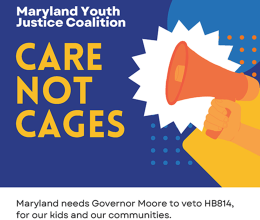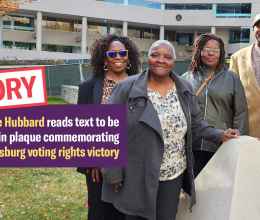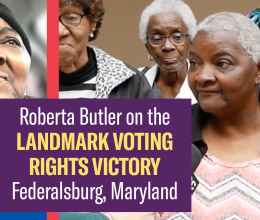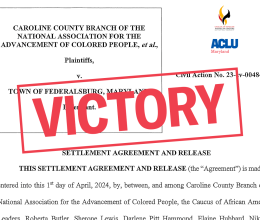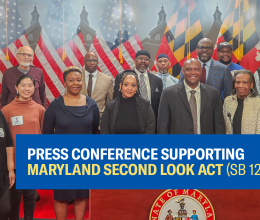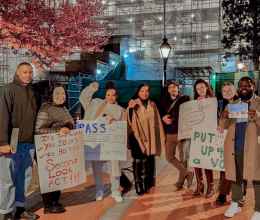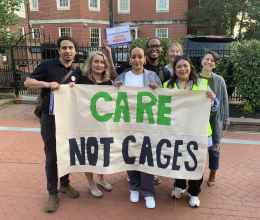
The local Police Accountability Board (PAB) must have the power and authority necessary to fulfill its purpose. The PAB needs to effectively and actively oversee the police department’s disciplinary process to increase transparency and accountability to the community it serves. If you are a Prince George's County resident, urge your councilmember to pass CB-81-2023 so the Prince George's PAB can do its job.
By Beverly John and Yanet Amanuel
John is a member of the Prince George’s Coalition for Police Accountability. Amanuel is public policy director for the ACLU of Maryland.
After new members were elected to the Prince George’s County Council last fall, the council dubbed itself “The People’s Council.” While this is encouraging to hear, as residents of this county, the actual litmus test for whether this new council is genuinely dedicated to the concerns of the people, and in particular, the needs of residents from less affluent, over-policed communities, is the passage of CB-81-2023, a bill to give the county’s new Police Accountability Board independent investigatory and subpoena powers. In other words, we’ll believe it when we see it.
In Prince George’s County, the journey toward achieving police accountability and reform has been tumultuous, marked by a persistent struggle for transparency and justice. One of the obstacles has been the subtle indifference within more affluent and less policed communities regarding issues of police accountability. This indifference stems from a false sense of security, limited exposure to the negative consequences of aggressive policing, and a lack of personal experiences with systemic injustices. While it’s true that abuse by police is most felt by Black and Brown working class residents, we have seen the horrific killings of Prince Jones Jr. in 2000, Archie Elliott III in 1993, and many others in the county who hailed from middle or upper-class communities.
Yet for decades, this indifference within affluent communities has been used as cover by the political leadership to do the absolute bare minimum on the issue of police accountability. This tendency can be attributed, in part, to the social circles and interactions of council members that are mostly people from privileged backgrounds. These interactions often fail to encompass the perspectives and lived experiences of the working-class people who bear the disproportionate impact of unchecked police misconduct.
This opinion piece was published on Maryland Matters on September 20, 2023.
